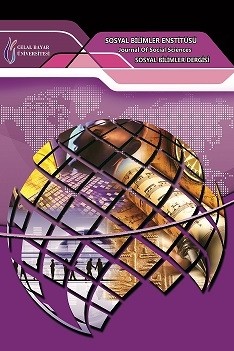KLASİK DÖNEM OSMANLI TARİH YAZIMINDA OTO SANSÜR VE ÇARPITMA: BEŞ OLAY BİR SONUÇ
SELF-CENSORSHIP AND DISTORTION IN CLASSICAL PERIOD OTTOMAN HISTORIOGRAPHY: ONE CONCLUSION FOR FIVE INCIDENTS
Author(s): Yunus İNCESubject(s): 13th to 14th Centuries, 15th Century, 16th Century, 17th Century, The Ottoman Empire
Published by: Celal Bayar Üniversitesi Sosyal Bilimler Enstitüsü
Keywords: Ottoman State; historiography; memory; selfcensorship; distortion;
Summary/Abstract: Many definitions have been made for history and it is seen that an aspect of history is referred to in each definition. According to Cicero,; “history is the memory of mankind”. Just as memory is extremely important for an individual, so is history, for humanity. It has been thought since the time of Cicero that there is an analogical connection between memory and history. Therefore, a historian is in the position of a memory guardian who protects memory and preserves the past. In reality, however, history cannot tell all of the past to the future generations or keep it, because not all incidents that occurred in the past can be recorded. A historian is a person who decides what can qualify as history and what cannot, by selecting some of the past events, and writing them down and indeed each preference/choice is at the same time a renunciation. In this sense, a certain part of the past is conveyed as history to subsequent generations and this state of affairs arises from the very nature of history.
Journal: Celal Bayar Üniversitesi Sosyal Bilimler Dergisi
- Issue Year: 17/2019
- Issue No: 01
- Page Range: 341-368
- Page Count: 28
- Language: Turkish

